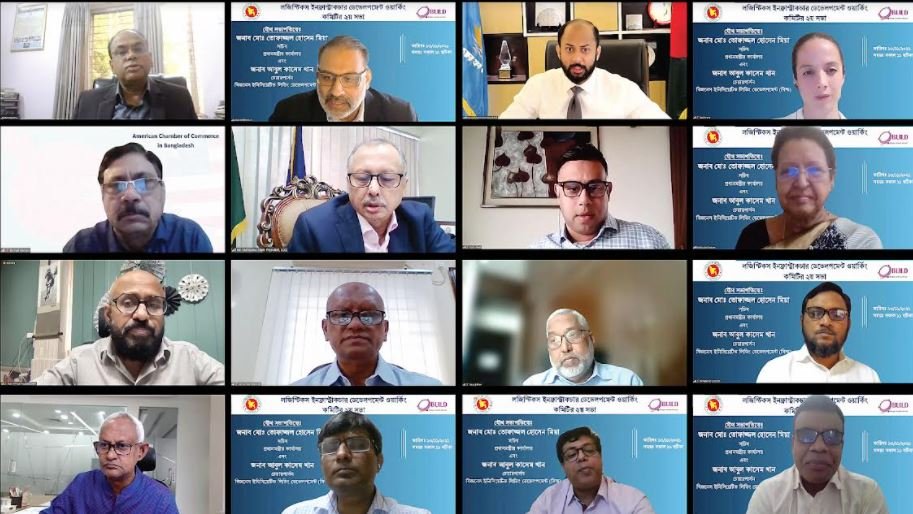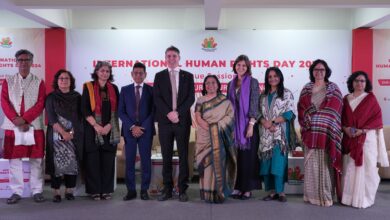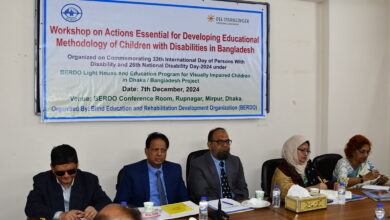Private sector engine of growth; PMO Secretary

Terming the private sector as the engine of growth, Prime Minister’s Office (PMO) Secretary Md Tofazzel Hossain Miah today said that the logistics sector needs more investment while the existing policy needs reforms so that more investment could be made.
The PMO Secretary said this while addressing virtually the Logistics Infrastructure Development Working Committee meeting.
Business Initiative Leading Development (BUILD) and Prime Minister’s Office jointly organised the meeting, said a press release.
Tofazzel said that Bangladesh cannot move forward without supporting the private sector during this worldwide economic transition period.
He recommended that the sector should be based on technology and skill.
Mentioning that the private sector should also be assisted with value-backed data, he emphasized on advocacy for logistics.
The PMO Secretary suggested for having a structured policy framework that may steer regulatory reforms as well as policy interventions, paving the way for a “logistics environment”.
The virtual meeting was co-chaired by PMO Secretary Md. Tofazzel Hossain Miah and Abul Kasem Khan, Chairperson of BUILD.
Abul Kasem Khan, Chairperson of BUILD, informed that developing countries invest 9-10 percent of their GDP to improve their logistics environment.
“Success stories of China, India, and Vietnam stand out as best practices in logistics. The return on investment is one of the highest in the world. Structural reform is required to mitigate key bottlenecks of the logistics system in Bangladesh”, he said.
Kasem also said the logistics sector should be declared as a thrust sector besides a high priority sector and proper incentives should be declared to attract local and foreign investment.
Rizwan Rahman, President, DCCI, focused on the specific solution as: (1) logistics should be included in the industrial policy as a sector, (2) privatisation of airports, seaports, railroads is the demand of time, (3) decentralisation of industrialisation should be incentivized to attract investment, (4) Special Procurement Act should be considered to prepare logistics policy.
Mahbubul Alam, President, CCCI, said that there is no policy on the in-out time of container trucks in Chattogram. The establishment of a central truck terminal may reduce the congestion stemming from this, he added. “Additionally, water connectivity may reduce over-dependency on the road”, he said.
Ferdaus Ara Begum, CEO, BUILD, in her presentation, informed that BUILD and the Ministry of Industries are working together to include logistics as a high priority sector and declare investment incentives for logistics and its sub-sectors in a separate chapter of the upcoming National Industrial Policy 2021.
It was decided in the meeting that two issues will be presented in the 3rd meeting of LIDWC, (1) framework or position paper will be prepared to set the national target of reducing logistics cost and (2) outline to prepare National Logistics Policy/Plan/Strategy.
Tatiana Peralta Quiros, Senior Transport Specialist of World Bank Group, made the keynote on Reducing Logistics Costs to Enhance Bangladesh’s Trade Competitiveness and Export Growth.
She said that logistics cost increases the overall production and business operation cost by 4.5-48 percent. Implementation of three initiatives like reducing dwell times at Chattogram Port and national highways congestion along with initiation of national logistics strategy would increase overall export of Bangladesh by 19 percent, she added.
Captain Kamrul Islam Mazumder, Bangladesh, Kabir Ahmed, President, BAFFA, and Masrur Reaz, Chairman, Policy Exchange spoke, among others, on the occasion.
The meeting was attended by Zubaida Nasreen, Director General-I, PMO, Anisur Rahman, Director-1, PMO and Mohammad Lutfullah, Senior Private Sector Specialist, International Finance Corporation, World Bank Group including representatives from 16 government ministries and private sector leaders.
Source: BSS





